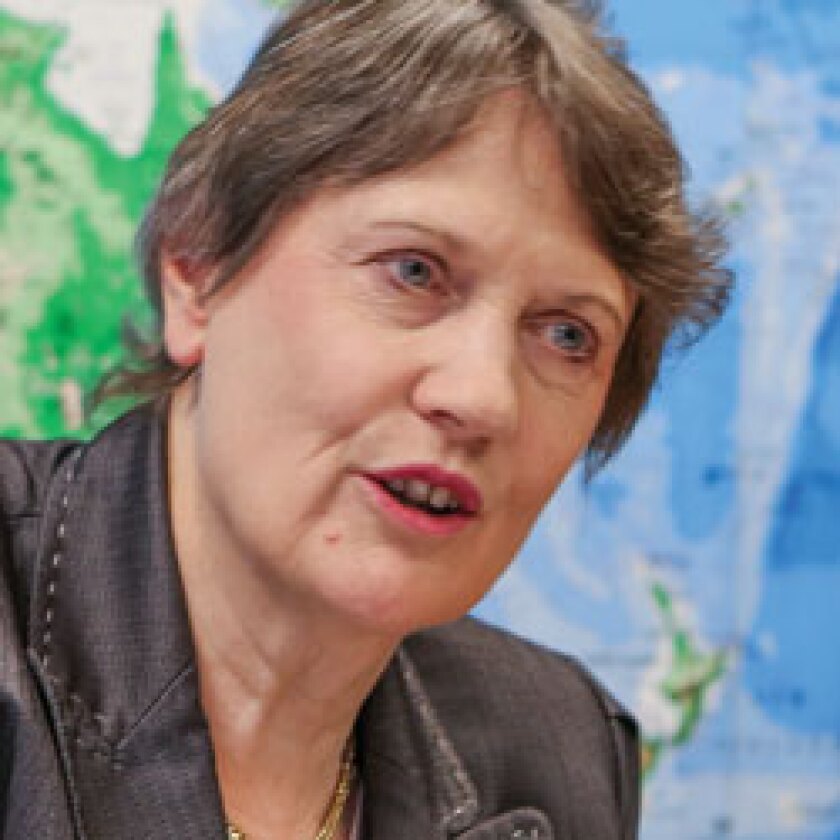Climate change, demographic pressures and conflict could undermine or even reverse global progress on poverty alleviation, the administrator of the United Nations Development Programme warned on Saturday.
Helen Clark said that while huge progress has been made on a global level in meeting several of the Millennium Development Goals – in particular the reduction of the number of people living below $1.25 per day – many countries are on course to miss most, or all of their targets. These countries are often mired in conflict and vulnerable to disasters and climate shocks.
“As these big, stable, emerging economies have got huge traction in lifting people out of poverty, the face of extreme poverty is coinciding with the geography of conflict, of great exposure to natural disasters, weak states, weak institutions and not great rule of law,” Clark said. “Add it all up and extreme poverty is perpetuated.”
But vulnerability to disaster, conflict and environmental pressures is not confined to low income countries. Economies now classed as middle income still have huge burdens of structural poverty, and even those who are outside of the technical definition of poverty remain vulnerable: “A lot of the people who have been moved out [of poverty] are just sitting above that line,” Clark said.
“What can be stable and middle income today can be middle income and deeply unstable tomorrow,” Clark said. “Witness the Arab Spring countries: Egypt was middle-income and stable, so was Tunisia. Libya was very high-middle income and stable. Syria was middle income and stable. Bahrain middle-income and stable. Stability and ability to develop isn’t really related to income status.”
Political exclusion, human rights and economic opportunity are all major determinants of development, and the ability to find employment for growing, young, populations should be a major focus for the international community, she said.
“This is the world’s hugest generation ever of young people and we’re struggling to see where the 600 million jobs we need in the next decade, just to keep unemployment where it is, are going to come from. If you don’t invest in opportunities for youth then you don’t have a demographic dividend, you have a demographic time bomb.”
Providing a future world population of 9 billion with food, water and energy is perhaps an even bigger concern. Climate change is already threatening to displace populations in China and India. Water resources are severely stressed in the Middle East, Central Asia and Africa.
These are issues exacerbated by man-made global warming that pose a massive threat to development and security. And yet an international agreement on emissions and adaptation funding remains elusive.
“It’s as if you’re in a parallel reality,” Clark said. “You now have major forecasting organizations who are not regarded as being out on the extreme end of environmental activism – like PriceWaterhouseCoopers, the International Energy Agency – saying that on current trends we’re heading for six degrees global warming. If two degrees was a tipping point and catastrophe, what’s six degrees?”
